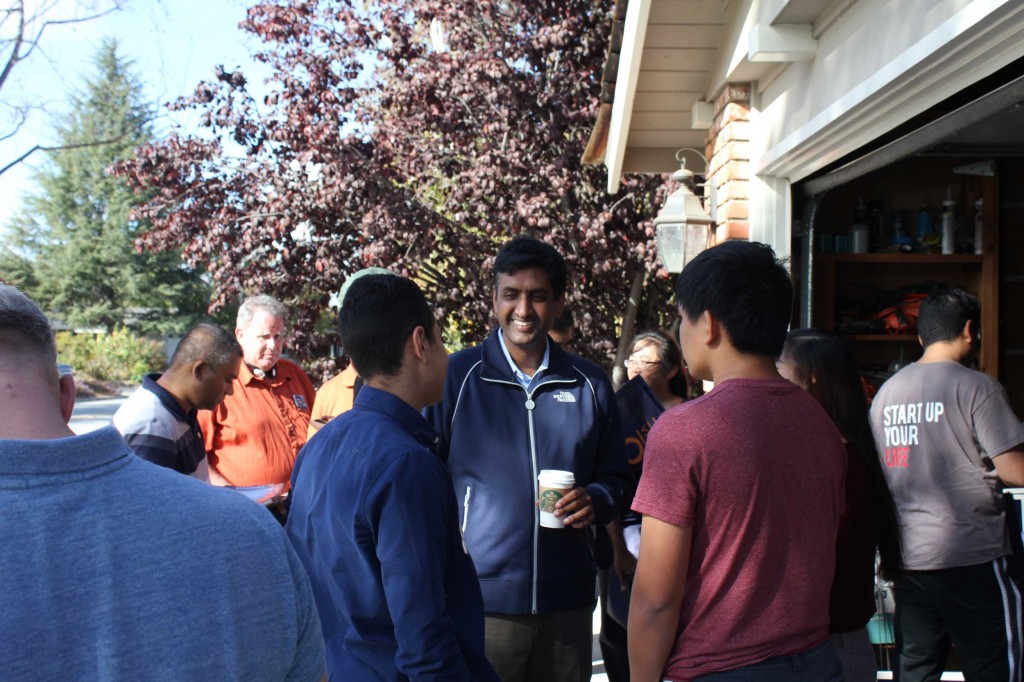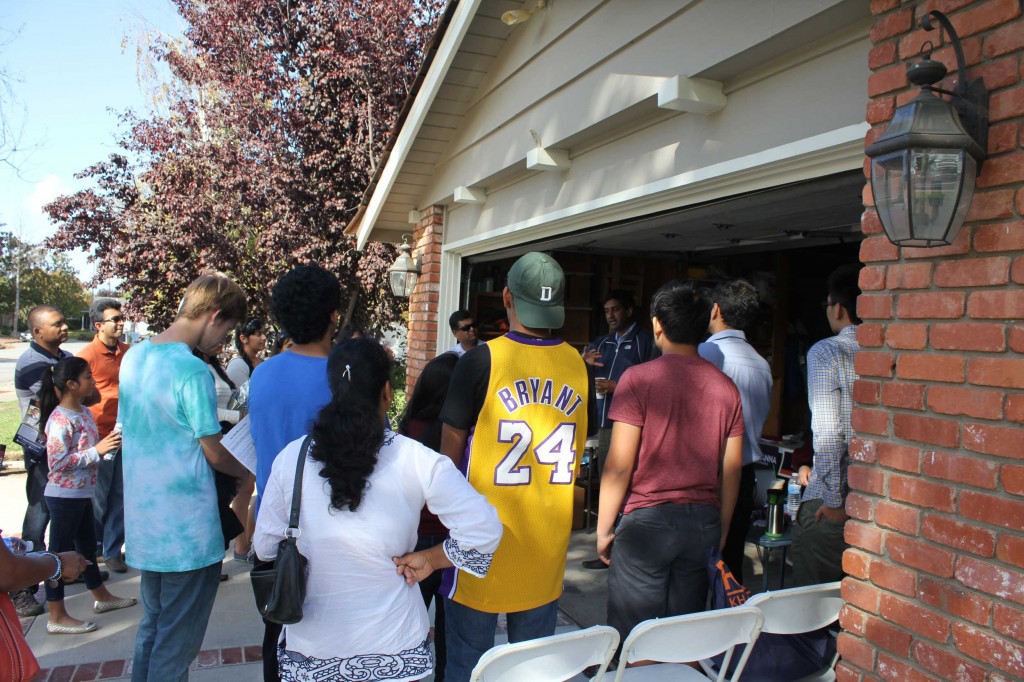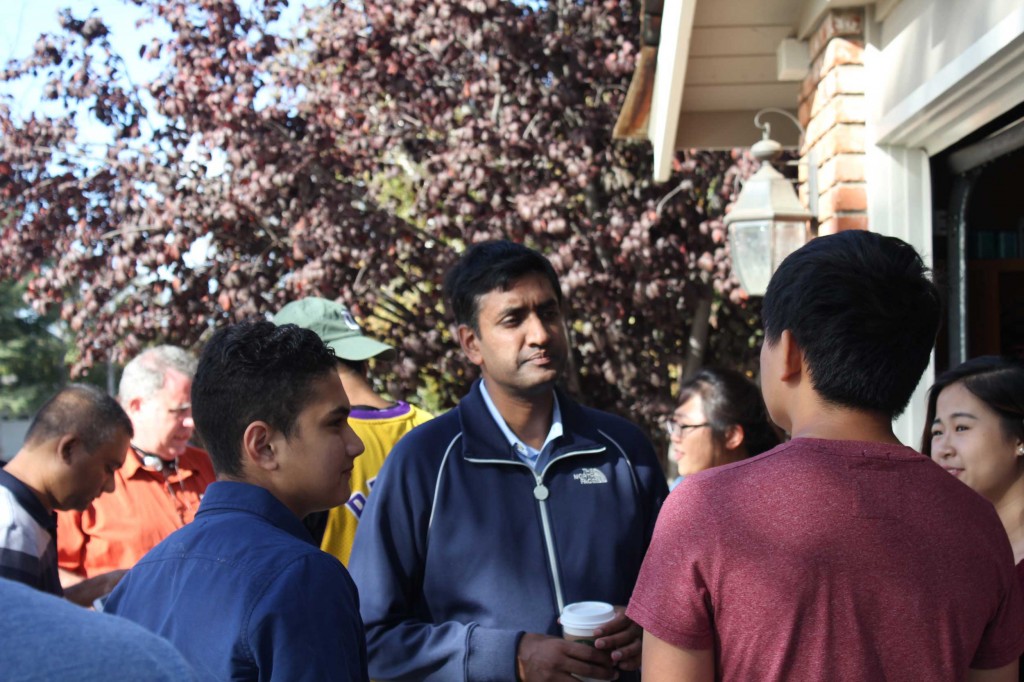
Ro Khanna has surged in the polls and heads to the Nov. 4 elections in a dead heat with incumbent Mike Honda in the race for California’s 17th Congressional District.
Khanna’s campaign to unseat the seven-time congressman has drawn national attention thanks to a donors list packed with tech luminaries including Google’s Eric Schmidt, Yahoo’s Marissa Mayer and Facebook’s Sheryl Sandberg.
But in the final days before the election, he’s turned to a youth grassroots campaign to put him over the top.
“We’ve really built a grassroots army, and I think the field and grassroots politics wins,” Khanna said at an Oct. 25 get-out-the-vote event in Sunnyvale where he joined young supporters in knocking on doors and distributing flyers. “I’m really excited that so many young people have taken ownership of the campaign.”
“This is the most important time,” Khanna, 38, told volunteers. “If you have an extra hour here and there to talk to people, to knock on doors, that can make all the difference.”
Aditya Reddy and Andrew Kotov, both 17-year-old seniors at Homestead High School, were among the couple dozen volunteers — mostly high school and college students — who canvassed the Sunnyvale neighborhoods in support of Khanna.
“We just think that we need change in Congress, and Mike Honda has been there for a while,” Reddy said. “We think Ro Khanna is a new figure, bringing new blood to Congress.”

Khanna, a lawyer who has worked in the high-tech sector, served as a deputy assistant secretary in the Commerce Department from 2009-2011. Khanna has touted his economic expertise, as well as knocked Honda for not getting enough done during his terms in Congress.
“I just thought Congress was broken, and that Mike Honda, while a nice man, was part of the problem,” Khanna said of his decision to run. “He wasn’t showing up to town hall meetings, he wasn’t active in the community. This is too important of a district. We’re at the heart of the American economy, and we can inspire a new generation of Americans to be active. I wanted to make this district’s voice matter in Washington.”
Honda’s campaign has criticized Khanna for being bankrolled by “right-wing billionaires,” like venture capitalists Peter Thiel and Chamath Palihapitiya, as well as not being consistent in how he represents his political viewpoints.
“Throughout his career, Ro has been different things, and it has been the same with this election,” Honda’s spokesman Vivek Kembaiyan said. “He ran in the primary as a progressive, but he’s been attacking Honda as an old-school liberal. Which is he? Voters know what Honda stands for – he’s a progressive who fights for his district.”
Khanna, an Indian-American, has drawn comparisons to President Barack Obama. Bloomberg Businessweek dubbed Khanna “Silicon Valley’s Wannabe Obama,” with both being minority Ivy League law school graduates who looked to enter politics at an early age.
Khanna was an undergraduate student at the University of Chicago in 1996 when he first met Barack Obama, who was then a 35-year-old candidate for the Illinois State Senate. Khanna ran for Congress for the first time in 2004, three years after graduating from Yale Law School, unsuccessfully challenging the late Tom Lantos in the Democratic primary in California’s 12th congressional district.
While Honda, 73, has secured the endorsement of the current president, Khanna’s campaign is stocked with veterans of the presidential Obama campaigns, including Obama fundraiser Steve Spinner and national field director Jeremy Bird.
Both of Obama’s presidential campaigns were especially effective in mobilizing a grassroots effort and engaging the younger demographic, and Khanna has been evoking a similar message of change and optimism in hopes of achieving similar goals.
“We need candidates who are going to talk about change, staying away from special interests and who are not going to engage in the same old type of politics,” Khanna said. “I think these young people are drawn to new, inspired, conviction-based politics.”

